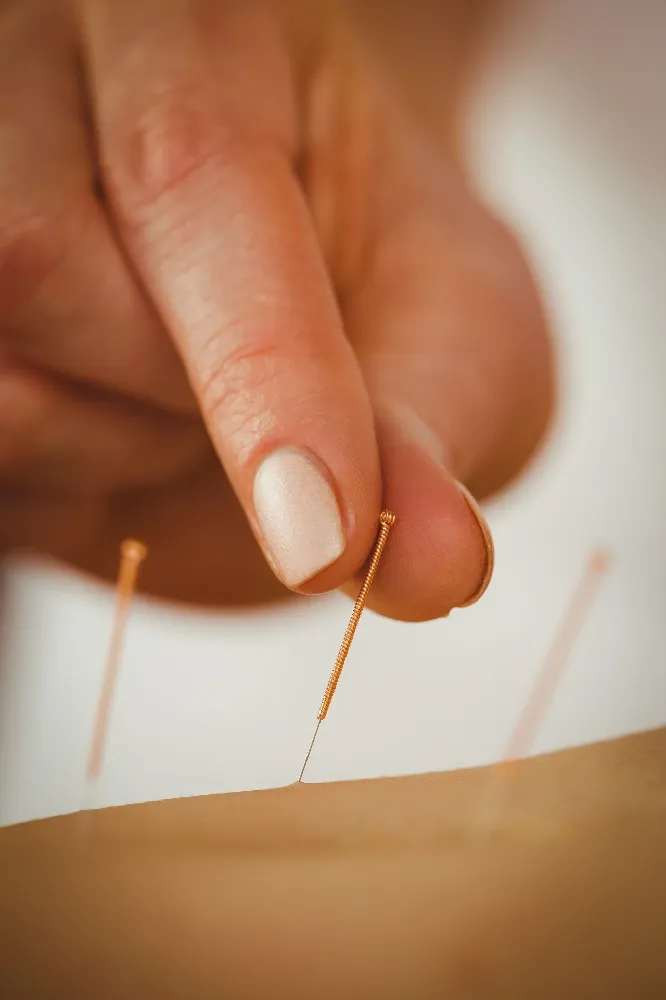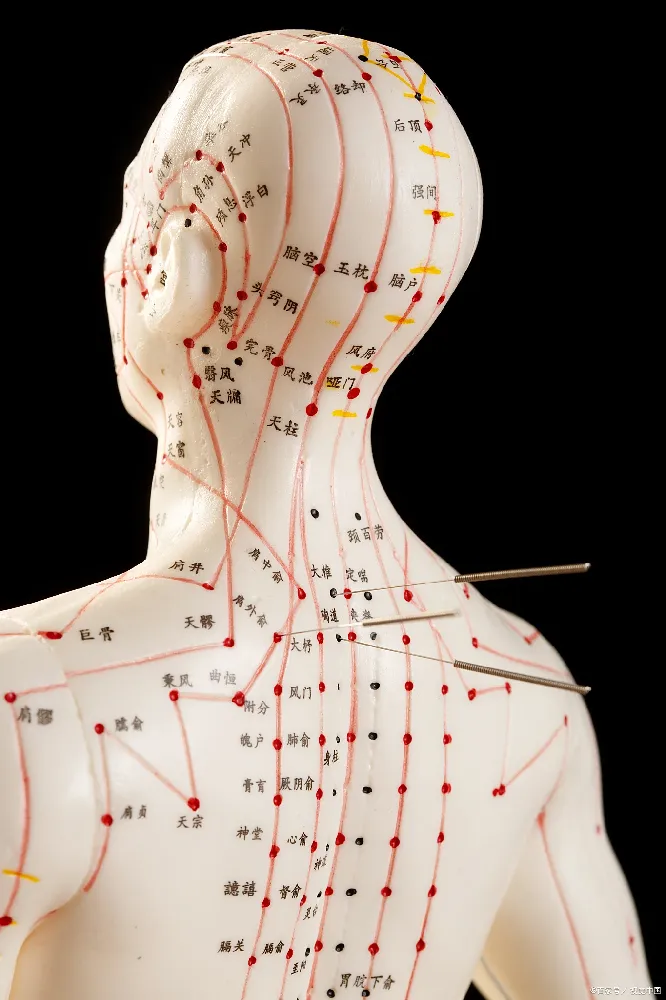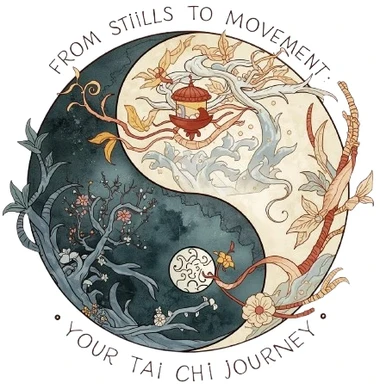Skip the Scroll — Here’s the Gist:
Acupuncture can support weight loss — but it’s not a magic needle. It works by calming cravings, boosting metabolism, and rebalancing hormones.
Key takeaways:
- Reduces hunger & emotional eating
- Improves digestion and energy use
- Works best alongside diet and movement
- Safe when done by a licensed pro
If you’re looking for a natural, holistic approach to shed stubborn pounds — without pills or extreme diets — acupuncture might be your tune-up.

What Is Acupuncture, Really?
Think of your body like a garden. When the pathways are clear — water flows, plants thrive. But when there’s a blockage? Weeds grow, things get stuck.
Acupuncture is like unclogging those pathways.
By inserting super-fine needles into specific points along your body’s energy network (called meridians), it helps your system rebalance — naturally. No drugs, no crazy gadgets. Just you, a cozy table, and a quiet chance to reset.
How Exactly Can a Few Tiny Needles Help You Lose Weight?
Great question. It’s not about “burning fat on the spot.” It’s about sending signals — turning down what’s overactive (like hunger or stress) and turning up what’s underactive (like digestion or metabolism).
Control Cravings & Reduce Overeating
You know those days when you just can’t stop snacking?
Acupuncture can help calm that noise.
Specific points — especially in the ear — are linked to appetite regulation. Studies suggest stimulating these points may:
- Lower levels of ghrelin (the “hunger hormone”)
- Ease stress-driven munchies
- Help you feel full sooner
It’s like giving your willpower a backup band.
Boost a Sluggish Metabolism
Feeling tired, cold, or stuck at a certain weight?
Your metabolism might need a nudge.
Through points like Zusanli (ST36) and Sanyinjiao (SP6), acupuncture can:
- Improve thyroid function
- Support better blood sugar balance
- Enhance digestion and nutrient absorption
You’re not just burning calories — you’re teaching your body to use energy better.
Balance Stress & Hormones
Stressed? Hangry? Retaining water?
Your hormones might be out of sync.
Acupuncture helps regulate cortisol and insulin — two major players in belly fat and fluid retention.
Less stress → less emotional eating → happier hormones.
Who Should Try Acupuncture for Weight Loss?
| You Might Be a Good Fit If… | Think Twice If… |
|---|---|
| You’ve tried diets but regain weight | You’re pregnant or have a bleeding disorder |
| You eat when stressed or bored | You have a pacemaker or seizure disorder |
| You feel bloated or sluggish often | You’re terrified of needles (though they’re hair-thin!) |
| You prefer natural, holistic approaches | You expect instant results without lifestyle changes |
Best results are often seen in adults 20–50, whose bodies are still responsive to metabolic retuning.

What Actually Happens in a Session?
Step 1: Talk It Out
Your acupuncturist isn’t just placing needles — they’re playing detective. They’ll ask about your sleep, digestion, mood, cravings, and even look at your tongue. (Yes, really — it tells a story!)
Step 2: The Needles
You’ll lie down. The needles are thinner than cat whiskers — most people feel a tiny tap, maybe a mild tingle or warmth. Nothing sharp.
Step 3: Zen Time
You rest for 20–30 minutes. Many doze off. It’s like a yoga nap for your nervous system.
Frequency? Typically 1–3 times a week for 4–12 weeks. This isn’t a one-and-done tune-up.
But… Does It Really Work? Here’s the Science
Look, I don’t trust hype either. Let’s get real:
- A 2021 meta-analysis found that acupuncture combined with lifestyle change led to significantly greater weight loss than lifestyle change alone.
- Another study showed ear acupuncture reduced belly fat in overweight adults.
But — and this is key — acupuncture alone won’t rewrite your metabolism.
It’s not a magic wand. It’s a tool. A very smart, very subtle tool that works with you — not for you.
How Does Acupuncture Compare to Other Weight Loss Methods?
| Method | How It Works | Vibe Check |
|---|---|---|
| Acupuncture | Balances hunger, stress, metabolism | Slow but steady, holistic, few side effects |
| Diet Pills | Suppresses appetite or blocks fat | Quick results… and sometimes jitters or “disaster pants” |
| Keto/Low-Carb | Cuts carbs to force fat burn | Works for many, but hard to maintain; may affect mood & energy |
| Intermittent Fasting | Time-restricted eating | Flexible and effective, but not great for hormone-sensitive folks |
| Surgery (e.g., gastric sleeve) | Reduces stomach size | Major intervention for severe obesity; requires lifelong diet shift |
Acupuncture isn’t a “weight loss miracle.” It’s a physiological reset — helping your body remember how to balance itself.
If you’re ready to approach weight loss with patience and curiosity? This might be your path.
Your next step? Find a licensed acupuncturist (L.Ac.) with experience in weight management. Go in with questions. Be open. And give it a few sessions — your body’s been waiting for this conversation.
Now I’d love to hear from you:
Have you ever tried acupuncture? Was it what you expected?
Comment below — let’s keep the conversation going.

What Does the Science Actually Say? Let's Get Real.
I know what you're thinking. "This sounds nice, but where's the proof?" I get it. We're bombarded with wellness trends that fizzle out faster than a cheap sparkler. So, let's talk data, not just vibes.
The research is promising, but it's not a simple "yes, it works 100%." Here’s the honest breakdown:
- The Evidence FOR It: A 2021 meta-analysis (that's a study of studies) published in the BMJ Open concluded that acupuncture was associated with significant reductions in body weight when compared to no treatment or placebo treatments. Another study highlighted that it can be particularly effective at reducing belly fat (waist circumference).
- How It Measures Up: Research often shows that acupuncture combined with diet and exercise leads to better results than diet and exercise alone. It's the enhancer, the catalyst.
- The "But...": Many experts point out that some studies have a high risk of bias. It's challenging to do a perfect "blind" study with acupuncture. The bottom line? Science suggests it's a effective supporting player, not a lone superhero.
Why might that be? Because you can't measure willpower or hormonal shifts in a petri dish. The biggest benefits—like feeling calmer, sleeping deeper, and craving sugar less—are often the hardest to quantify but make the biggest difference in your daily life.
Think of it this way: if your body is a smart home, acupuncture helps recalibrate the thermostat and fix the faulty wiring, so the lights (your metabolism) turn on when they should.
Acupuncture vs. Everything Else: Which Weight Loss Path is Right for You?
Let's be real, you have options. Lots of them. How does stacking tiny needles against other methods look? Let's break it down, no fluff.
| Method | How It Works | The Real Deal |
|---|---|---|
| Acupuncture | Tunes your body's systems. Reduces hunger hormones, manages stress, improves metabolism. | PROS: Holistic, minimal side effects, treats root causes like stress. CONS: Requires multiple sessions, not a quick fix. |
| Diet Pills & Supplements | Often stimulants or fat blockers. Suppress appetite or prevent fat absorption. | PROS: Can offer fast initial results. CONS: Jitters, crashes, "disaster pants" (you know why), and effects vanish when you stop. |
| Keto / Low-Carb | Forces your body to burn fat for fuel by severely cutting carbs. | PROS: Effective for quick water weight and fat loss for many. CONS: Restrictive, "keto flu," hard to maintain socially, can impact athletic performance. |
| Intermittent Fasting | Limits when you eat, not what you eat, creating a natural calorie deficit. | PROS: Flexible, simple, can improve insulin sensitivity. CONS: Not for everyone (especially those with hormone issues), can lead to overeating in feeding windows. |
| Surgery (e.g., Gastric Sleeve) | Physically reduces stomach size to limit food intake. | PROS: A powerful tool for severe obesity. CONS: Major surgery, lifelong dietary changes required, potential for complications. |
So, which one wins?
There is no winner. There's only what's right for YOU.
If you're looking for a natural, side-effect-light approach that helps you reconnect with your body's signals while you work on your habits, acupuncture is a phenomenal choice. If you need to lose a significant amount of weight quickly for health reasons, a more aggressive approach under medical supervision might be necessary.
The beautiful part? Acupuncture doesn't have to be an "or," it can be an "and." Many people use it to help them stick to their intermittent fasting schedule or have more energy to exercise. It's about building a toolkit, not choosing a single weapon.
Okay, I'm In. How Do I Start This Journey?
You’ve weighed the options, and you're curious. This is where we move from theory to practice. Getting started is simpler than you think, and it all begins with finding the right guide.
Step 1: Find Your Practitioner (This is the Most Important Step)
Don't just Google "acupuncturist near me" and pick the first one. You're not looking for a technician; you're looking for a partner in your health.
Here’s your cheat sheet for finding a great one:
- Check Credentials: In the U.S., look for L.Ac. (Licensed Acupuncturist) or Dipl. Ac. (Diplomate of Acupuncture). These mean they have extensive training and passed national board exams. Some medical doctors are also certified, but ensure it's more than a weekend course.
- Specialty Matters: Look for practitioners who explicitly mention weight management, endocrine health, or digestive wellness in their bio.
- Read Reviews, But Read Between the Lines: Don't just look for 5 stars. Look for reviews that mention "felt heard," "helped with my energy," or "supported my health goals." This indicates a holistic approach.
- Schedule a Consult: Most good acupuncturists offer a low-cost or free short consultation. Use this to feel them out.
👉 Your Script: 3 Questions to Ask in a Consultation
- "What is your typical approach to supporting weight loss with acupuncture?" (Their answer should include diet, lifestyle, and possibly herbs—not just needles.)
- "How do you tailor treatments to the individual?" (If they say the same points for everyone, walk away.)
- "What can I realistically expect in terms of how I might feel and the timeline?" (They should be honest and not promise 10 pounds a week.)
Step 2: Your First Session—What Actually Happens
Walk in. Leave your shoes and your stress by the door.
- The Deep Dive (30-45 mins): This is the "intake." They'll ask you questions—about everything. Your sleep, digestion, stress levels, cravings, even your mood. They'll look at your tongue and feel your pulses (both wrists, checking different organs). This isn't small talk; it's data collection.
- The Needling (20-30 mins): You'll lie on a comfortable table. The points chosen are based on your unique intake. You might get needles in your ears, belly, legs, and feet. It’s not a one-size-fits-all recipe.
- The Rest: Then, the magic. You rest with the needles in. This is often the part people crave—a mandatory, deep quiet. Many fall asleep. You're not doing anything; you're allowing.
Step 3: Weaving It All Together—The Big Picture Plan
Acupuncture sets the stage, but the life you live between sessions seals the deal.
Your Between-Session Game Plan:
- Hydrate: Needles help move energy. Water helps move everything. Drink up.
- Listen to Your Body: You might feel unusually tired after your first session. That's okay! Your body is doing deep work. Honor it. Or, you might feel a burst of energy—use it for a walk.
- Eat Mindfully: You'll likely find your cravings are quieter. This is your window of opportunity. Don't just eat. Tune in. Are you actually hungry? Or just bored?
- Move Gently: You don't need to run a marathon. A 30-minute brisk walk most days does wonders for circulation and mood, amplifying the acupuncture effects.
The Final Word: It's Not About the Needles, It's About You
Let's be clear one last time: acupuncture is not a magic bullet.
It is, however, a powerful invitation. An invitation to slow down. To listen. To give your body the support it needs to find its way back to balance.
The number on the scale might change, but the real victory is in the quiet moments: choosing a salad because it sounds good, feeling your jeans fit differently, and realizing you made it through a stressful day without raiding the pantry.
That's the real transformation. The weight loss is just a welcome side effect.
You have the information. You have the roadmap. The first step—booking that consultation—is the bravest one you'll take.
Your body is whispering. Isn't it time you listened?
👉 Ready to take the next step? Use our trusted practitioner directory to find a licensed acupuncturist in your area today.
FAQs: Your Top Questions, Answered Honestly.
Does it hurt?
This is the #1 question. The insertion is usually a tiny tap. Once the needle is in, you might feel a dull ache, a tingling, warmth, or… nothing at all. It's not the sharp pain of a medical shot. If you do feel a sharp nerve pain, tell your practitioner immediately—they'll adjust it.
How soon will I see results?
This isn't a "one and done" deal. Some people feel a difference after the first session—often a sense of calm or a noticeable drop in cravings. Measurable weight changes typically start to appear after 4-6 consistent sessions. Remember, you're rewiring systems, not deflating a balloon.
Can I just do ear seeds instead?
Ear seeds (tiny seeds taped to acupoints on your ear) are a great maintenance tool. You press on them throughout the day when cravings hit. But for most people, they work best as a supplement to full-body acupuncture, not a replacement. It's like using a single vitamin when you need a full dietary overhaul.
I'm scared of needles. Is there any hope for me?
Absolutely. First, the needles are nothing like injection needles—they're flexible and hair-thin. Second, many acupuncturists are masters of working with needle-phobic patients. Tell them upfront! They can use fewer needles, place them where you're comfortable, and use non-insertive techniques like acupressure to start.
How does acupuncture for weight loss actually work?
Acupuncture aids weight loss through multiple pathways: regulating hunger hormones like ghrelin, reducing stress-induced eating, improving metabolic function, and enhancing digestion. It's a holistic approach that addresses root causes rather than just symptoms.
What are the best acupuncture points for weight loss?
Key points include: Zusanli (ST36) for digestion and metabolism Zhongwan (CV12) for appetite control Sanyinjiao (SP6) for hormonal balance Ear points (Hunger, Shenmen) for cravings Tianshu (ST25) for abdominal fat
Can acupuncture help with emotional eating and stress-related weight gain?
Absolutely. Acupuncture is particularly effective for stress reduction and emotional balance. By regulating cortisol levels and calming the nervous system, it helps break the cycle of stress-eating and reduces cravings for comfort foods.
How many acupuncture sessions are needed for noticeable weight loss results?
Most people see initial changes within 4-6 sessions, with recommended courses of 8-12 sessions. Maintenance typically requires monthly visits. Consistency is key—it's a process of retraining your body's systems.
What's the difference between body acupuncture and ear seeds for weight loss?
Body acupuncture provides comprehensive systemic regulation, while ear seeds (auricular therapy) offer continuous stimulation between sessions. They work best together—ear seeds maintain the effects, while body sessions drive deeper change.
Are there any side effects or risks with weight loss acupuncture?
When performed by a licensed practitioner, risks are minimal. Some people experience temporary mild bruising, slight dizziness, or fatigue. Serious complications are extremely rare with proper training and sterile techniques.
Can acupuncture help with specific issues like belly fat or post-pregnancy weight?
Yes. Different protocols address: Abdominal obesity: Focus on digestive and metabolic points Post-pregnancy: Hormonal rebalancing and core recovery Menopausal weight: Endocrine system support Water retention: Points that enhance fluid metabolism
Do I still need to diet and exercise while doing acupuncture?
Acupuncture enhances but doesn't replace healthy habits. It makes lifestyle changes easier by reducing cravings, boosting energy, and improving workout recovery. Think of it as making your body more responsive to healthy choices.
How does acupuncture compare to weight loss drugs or supplements?
Unlike stimulant-based products, acupuncture works with your body's natural rhythms without artificial chemicals. It has no "crash" effect and provides benefits beyond weight loss, including better sleep, mood, and digestion.
What should I look for in a weight loss acupuncturist?
Seek practitioners with: L.Ac. licensure and clean needle certification Specific training in weight management Comprehensive approach including lifestyle guidance Positive reviews mentioning sustainable results Clear communication about realistic expectations
Can acupuncture prevent weight loss plateaus?
While plateaus can still occur, acupuncture helps overcome them by continuously adapting to your body's changing needs. Practitioners adjust point combinations as your metabolism and responses evolve.
Is acupuncture weight loss covered by insurance?
Some plans cover acupuncture, particularly if prescribed for obesity-related conditions. Check with your provider about "medical acupuncture" coverage and required documentation from your physician.
How soon after starting acupuncture will I notice reduced cravings?
Many people report decreased cravings within the first 1-2 weeks, with more significant changes emerging after 3-4 consistent sessions. The effect builds gradually as your nervous system recalibrates.
Can I combine acupuncture with other weight loss methods?
Acupuncture integrates well with: Intermittent fasting (helps manage hunger windows) Keto diets (supports fat adaptation) Exercise programs (enhances performance recovery) Mindfulness practices (deepens mind-body connection)
What makes TCM weight loss different from conventional approaches?
Traditional Chinese Medicine doesn't just count calories—it addresses the underlying patterns causing weight retention, whether it's spleen qi deficiency, liver qi stagnation, or dampness accumulation, creating sustainable change from within.
